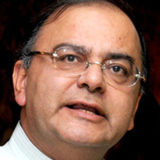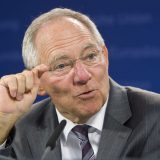Posted on 09 February 2015.
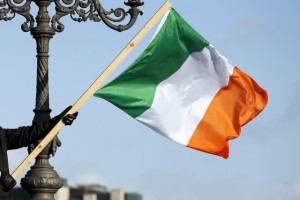 Ireland will insist that any new or modified agreement achieved by Greece, also applies to them. It said the Irish Minister for Agriculture Simon Coven. The Greek Prime Minister Alexis Tsipras rejected the idea of an extension of the rescue package for Greece. He met with European premiere in Brussels this week. Instead of an extension of the program, which expires on 28th February 2015, Tsipras reiterated its call for the program to the country relies to June. Then you can achieve a long-term agreement on the debt. He expressed confidence that such an agreement can be reached between Greece and its international lenders.
Ireland will insist that any new or modified agreement achieved by Greece, also applies to them. It said the Irish Minister for Agriculture Simon Coven. The Greek Prime Minister Alexis Tsipras rejected the idea of an extension of the rescue package for Greece. He met with European premiere in Brussels this week. Instead of an extension of the program, which expires on 28th February 2015, Tsipras reiterated its call for the program to the country relies to June. Then you can achieve a long-term agreement on the debt. He expressed confidence that such an agreement can be reached between Greece and its international lenders.
Coven said the same rules should apply to Greece as well as all other countries of the European Union.
“We encourage Greece to do the same thing as Ireland did. This is to restructure and change the way in which the debt is paid, in order to reduce its weight”, said Coven. “Ireland and other European countries will be looking for ways to help Greece to do so, but we need to ensure that the same rules apply to Greece and to all others. If there is anything else to offer to Greece, then Ireland is ready to consider it, but we will insist that any new or improved deal apply to Ireland and Greece”.
Coven told Radio One, that Ireland has shown that there are ways how to dramatically reduce the burden of debt. Eurogroup finance ministers, including the Irish Minister Michael Noone will meet in Brussels on Wednesday. The special meeting will be attended by Greek Finance Minister Yanis Varoufakis. The meeting of leaders of the European Union is scheduled for Thursday, as expected, it will also be dominated by the theme of Greece. About 80% of the Greek debt to state creditors, mainly other Eurozone countries. Therefore member states such as Ireland probably will not support any debt cut.
Posted in Comments, Finance

Posted on 09 February 2015.
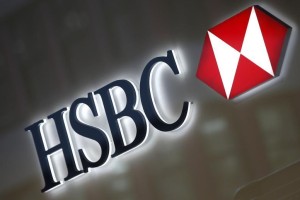 The British bank HSBC Holdings Plc confessed on Sunday gaps in its Swiss subsidiary, in response to media reports that the company has helped wealthy clients hide assets and taxes for millions of USD.
The British bank HSBC Holdings Plc confessed on Sunday gaps in its Swiss subsidiary, in response to media reports that the company has helped wealthy clients hide assets and taxes for millions of USD.
“We recognize and acknowledge the problems with compliance control”, indicated by HSBC on Sunday after influential media, including the French newspaper Le Monde and Britain’s The Guardian, published materials on its Swiss subsidiary. The Guardian cited documents obtained by the International Consortium of Investigative Journalists by Le Monde.
HSBC said its Swiss unit has not been fully integrated after buying it in 1999, allowing compliance “significantly lower” standards. According to information in the media HSBC in Switzerland is allowed customers to withdraw large amounts of cash, often in foreign currency, which probably enabled wealthy clients avoid taxes, thus concealing the existence of any accounts in the country. Detailed accounts of four pages showed that the Swiss unit has undergone a “radical transformation” in recent years. Local lender was acquired as part of the purchase of Republic National Bank of New York and Safra Republic Holdings.
By HSBC indicated that the number of accounts in the Swiss bank has dropped from 30,412 in 2007 to 10,343 at the end of last year. The Bank is cooperating with authorities investigating the case. Contrary to the trend of withdrawal of funds from Switzerland, other data of the International Consortium of Investigative Journalists showed that more than 380 million USD from Bulgaria were directed to one of the Swiss banks in the period from 1988 to 2006, the documents published under the name SwissLeaks show a scheme of tax avoidance and evasion of capital totaling 120 billion USD from over 200 countries.
Among the leaders in this ranking are Switzerland, UK, USA, France and Italy, where they were drained billions. It was found that some of the bank accounts belonging to dictators, corrupt politicians, drug traffickers and arms, while others - of stars from the world of cinema, fashion or sports.
In the most difficult years of transition in the country, between the democratic changes and EU membership, in that Swiss bank were opened 95 accounts of individuals and organizations with Bulgarian address. Nearly half of them were anonymous - by number instead of name. Related Bulgaria clients of the bank are 74, only 11% of them, however, had Bulgarian citizenship. The biggest expense of the Bulgarian client was worth over 264 million USD, the investigation shows.
Posted in Business, Finance

Posted on 27 January 2015.
 At the tail end of 2014, China quietly surpassed the USA as the biggest economy in the world. The giant country, with a population of 1.4 billion has seen a huge rise over the last decade. Its strong period of growth can be attributed to their stock capital. The sheer number of factories and manufacturing units is overwhelming. Most of this took place in the period between 1978 and now. In 1978, China reformed its entire economic system. It embraced a free market economy and allowed capital to flow freely. It open up the entire system away from a communist tradition.
At the tail end of 2014, China quietly surpassed the USA as the biggest economy in the world. The giant country, with a population of 1.4 billion has seen a huge rise over the last decade. Its strong period of growth can be attributed to their stock capital. The sheer number of factories and manufacturing units is overwhelming. Most of this took place in the period between 1978 and now. In 1978, China reformed its entire economic system. It embraced a free market economy and allowed capital to flow freely. It open up the entire system away from a communist tradition.
Although China would not yet be considered a ‘superpower’ it certainly is rising. Its market rests strongly on an industrial economy. It is not yet a pioneering technology in the way that USA, UK or Japan are. Nevertheless, it does now have the biggest economy in the world. That makes it a major player on this planet. As such, foreign investment is flooding towards to the vast country.
The UK, who invested over £6 billion in China over the last five years, has made a grand claim. That current investment will be quadrupled in the same period. By 2020, the UK will invest over £26 billion in the country. Where exactly that investment will go, we are unsure. However, looking at the current state of the economy and investment, we can make an educated guess. China has grown large and powerful in the manufacturing industry. However, like its large neighbor, Russia, it has its eyes firmly on the future.
The next period of investment looks to fall in the energy sector. China has been slow to adopt climate control sanctions throughout its country. It is the single biggest (current) contributor to carbon emissions on the planet. However, at the end of 2014, it pledged to hit a peak emissions output and begin to reign it in. That means investing in new industry. It means embracing new concepts and technology. Much of the funding will come from foreign investment.
The country will also begin to move away from traditional industry and into administration. The move has already begun but will increase significantly over the next five years. If you’ve ever asked, “what does a business administration professional make as a salary?” you’re not the only one. China is realising that the future is in business admin.
China has also been notoriously strict with its media access. As modern nations go, it is still very secretive and has control over much of the media. This is also slowly changing and it is opening up its media and entertainment channels. This gives it a more universal appeal for foreign investment. UK are not the only nation to increase investment. Hong Kong is currently its largest contributor and looks set to increase. Japan, Singapore, USA and Germany are also setting course for further investment.
China has proved itself as a major player in the world of industrialisation. Now it looks to take on board foreign investment (and invest itself in other nations) to move forward. The biggest leaps will come in the energy sector, the business admin sector and the media.
Posted in Economy, Finance

Posted on 21 January 2015.
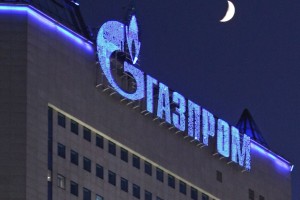 The international rating agency Moody’s Investors Service decreased the credit ratings of eight Russian non-financial companies. The credit rating of Gazprom in foreign currency was reduced from “Baa2″ to “Baa3″ and the rating in national currency was decreased from “Baa1″ to “Baa2″. The short-term foreign currency rating has been reduced from “Prime-2″ to “Prime-3″ and the national level is confirmed “Prime-2″.
The international rating agency Moody’s Investors Service decreased the credit ratings of eight Russian non-financial companies. The credit rating of Gazprom in foreign currency was reduced from “Baa2″ to “Baa3″ and the rating in national currency was decreased from “Baa1″ to “Baa2″. The short-term foreign currency rating has been reduced from “Prime-2″ to “Prime-3″ and the national level is confirmed “Prime-2″.
Rating of OAO AK Transneft and the rating of unsecured debt securities issued to the subsidiary TransCapitalInvest Ltd were reduced from “Baa2″ to “Baa3″ with a negative outlook. Also the rating of Rosneft and its subsidiaries Rosneft Finance SA, Rosneft International Finance Limited and Rosneft International Holdings Limited were reduced from “Baa3″ to “Baa2″. The same is the situation with Gazprom oil and its subsidiaries GNP Capital SA, OAO Federalynaya passazhirskaya company, OAO LUKOIL and its subsidiary LUKOIL International Finance, GMK Norilyskiy Nikel and its subsidiary MMC Finance Ltd, OAO RZD and subsidiary RZD Capital Plc. The ratings of the Corporation Irkut is dropped from “Ba2″ to “Ba3″, and OAO FSK EЭS from “Baa3″ to “Ba1″. All ratings have a negative outlook, which means that it can be further reduced.
Ratings of non-financial corporations affected by today’s decision are under surveillance because of the review given the downgrading of sovereign debt securities. Finances Wire Journal recall that on Friday, the agency downgraded Russia to the lowest investment grade, after the sharp decline in oil prices and the worst currency crisis of 1998 affected the growth of the Russian economy.
“The severity and likely sustainable oil shock, together with very limited international access to capital due to ongoing sanctions undermines economic fundamentals and increased financial pressure on the public and private sectors”, said Moody’s. “The significant decline in oil prices and the ruble will further erode the already weakened growth prospects in the medium term”.
Russia is on the brink of recession, after oil, the biggest export product of the country fell by more than 50% since June. The ruble depreciated again by 47% in the last six months of funding restrictions and export bans imposed by the US and its allies after annexing of Crimea Putin, led investors to avoid currency. The Russian central bank raised its key interest rate six times since March to 17% and spend 88 billion USD in 2014 to support the currency.
Posted in Business, Finance

Posted on 19 January 2015.
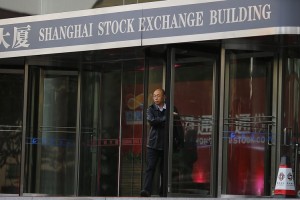 Chinese shares tumbled on Monday due to sharp sell-offs in the financial sector. The positive performance on Wall Street late last week did support the growth rates of other Asian markets. The main Shanghai Composite Index fell with over 7%, led by declines in most financial shares fell by the maximum of 10%. The reason was that regulators have accused local brokers in illegal activities in margin trading. Losses came a day before the release of data for China’s economic growth in the fourth quarter. Sitic Securities, Haitong Securities and Everbright Securities were just some of the companies that erased 10% due to the repression of the authorities in relation to the margin lending.
Chinese shares tumbled on Monday due to sharp sell-offs in the financial sector. The positive performance on Wall Street late last week did support the growth rates of other Asian markets. The main Shanghai Composite Index fell with over 7%, led by declines in most financial shares fell by the maximum of 10%. The reason was that regulators have accused local brokers in illegal activities in margin trading. Losses came a day before the release of data for China’s economic growth in the fourth quarter. Sitic Securities, Haitong Securities and Everbright Securities were just some of the companies that erased 10% due to the repression of the authorities in relation to the margin lending.
It was a bloodbath for Chinese stocks. Although this is a blow to the shares in the short term, attitudes seem positive, as officials continue to carry out reforms and to limit excessive speculation, commented analysts.
In Hong Kong Hang Seng cpadna c nearly 2%, a China Enterprises index wiped more than 5%.
The Japanese benchmark Nikkei 225 index closed above 17,000 points, recovering from the loss of almost 1% on Friday. Among the biggest winners were Sony and Itochu, added more than 2%. Sharp wiped almost 9% after the Nikkei newspaper reported that the company can provide a net loss of “billions of JPY” for the current financial year.
The AUstralian benchmark S&P ASX 200 terminate five straight sessions of losses, moving away from one-month low of 5,299 points on Friday. The mining companies performed strongly after the appreciation of copper. Oz Minerals and Sandfire Resources added respectively 8% and 7%. Macquarie expand by more than 5% after predicting 10-20% growth in annual profit.
South Korean KOSPI returned to growth after a loss of 1% on Friday, boosted by increases in manufacturers of ships. Hyundai Heavy Industries and Daewoo Shipbuilding rose by 9%.
Posted in Finance, Indexes

Posted on 19 January 2015.
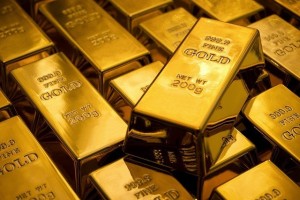 The price of gold rose to its highest level in more than four months on Friday amid turmoil in the foreign exchange market after the decision of the Swiss Central Bank to remove the ceiling against the EUR. The Gold futures with February delivery reached a maximum of value of 1,292.40 USD per ounce for the last session, which is the highest level since 2nd September 2014. Finally the gold futures price settled at 1,276.90 USD per ounce, adding 0.96%. A day earlier, the gold jumped with 2.45% to close at 1,264.80 USD per ounce. For the week, the yellow metal rose by 4.76%, taking into account the second consecutive weekly increase.
The price of gold rose to its highest level in more than four months on Friday amid turmoil in the foreign exchange market after the decision of the Swiss Central Bank to remove the ceiling against the EUR. The Gold futures with February delivery reached a maximum of value of 1,292.40 USD per ounce for the last session, which is the highest level since 2nd September 2014. Finally the gold futures price settled at 1,276.90 USD per ounce, adding 0.96%. A day earlier, the gold jumped with 2.45% to close at 1,264.80 USD per ounce. For the week, the yellow metal rose by 4.76%, taking into account the second consecutive weekly increase.
Meanwhile, silver futures for March delivery jumped 3.79% on Friday to settle at 17.75 USD per ounce at the end of trading. The level was the highest since 24th September 2014. In this way the silver futures with March delivery added 7.54% for the week, taking into account also the second straight weekly growth.
The prices of precious metals rose after Thursday Swiss Central Bank removed the minimum exchange rate of 1.20 CHF per EUR, introduced in September 2011. The central bank also cut more negative interest on overnight deposits from -0.25% to -0.75%, which is a move designed to discourage investors to buy CHF.
The EUR fell to a record low of 0.8696 CHF on Thursday and ended the week with a loss of over 17%. The pair USD/CHF tumbled to 0.7360, which is the lowest level since August 2011, and ended the week with a loss of almost 15%.
Gold is often seen as an alternative currency and refuge in times of global economic uncertainty. The Continuing speculation what will be the action of the European Central Bank after its meeting on 22nd January 2015. A possible reduction in interest rates and providing additional incentives are likely to further support the precious metals.
Meanwhile, the dollar index ICE, which measures the strength of the greenback against a basket of six major currencies, ce rose 0.57% to 93.05 points, taking into account their fifth straight week of growth.
One of the main reasons are the differences in monetary policies in the US and Europe. Meanwhile the ECB will likely continue to loosen monetary conditions in Europe, the Fed still wondering when to take the first rise in rates after the crisis of 2008 is expected institution to resort to people in the middle of 2015.
Posted in Commodities, Finance

Posted on 16 January 2015.
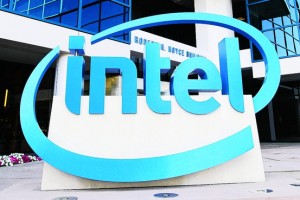 The largest world producer of Intel chips benefit from slowing decline in the PC market and strong business servers. Intel revenue increased by 6.4% in Q4 2014 to 14.72 billion USD, while the profit increased by 39% to 3.7 billion USD. In the post-trading shares initially fell by about 2%. The results show once again the problems Intel’s business with smartphones and tablets. The total calculated Intel revenue for 2014 amounted to 55.8 billion USD, as 49 billion USD from them by the divisions of PCs and servers.
The largest world producer of Intel chips benefit from slowing decline in the PC market and strong business servers. Intel revenue increased by 6.4% in Q4 2014 to 14.72 billion USD, while the profit increased by 39% to 3.7 billion USD. In the post-trading shares initially fell by about 2%. The results show once again the problems Intel’s business with smartphones and tablets. The total calculated Intel revenue for 2014 amounted to 55.8 billion USD, as 49 billion USD from them by the divisions of PCs and servers.
For the last quarter division and mobile telecommunications chips reported unusual negative revenue 6 million USD, as ultimately Intel pays prompting manufacturers to use its processors. The division reported an operating loss of 1.11 billion USD.
The generosity in the mobile business is financed by proven sources of money - PCs and servers for data centers. Intel is a key beneficiary of the generally somewhat better business with laptops and desktops. If sales of PCs declined by 10% in 2013, this year’s market research showed a drop of no more than 2%.
The Intel sales revenue in the chip division increased by 3% to 8.87 billion USD. This division takes care of about 60% of the entire business of Intel. The net operating profit jumped by 18.7% to 4 billion USD. In division server sales revenue rose by a quarter to nearly 4.1 billion USD. The operating profit in the division rose by 39% to over 2.2 billion USD.
The young business with chips for network devices has brought a quarterly operating profit of 185 million USD on revenue of almost 600 million USD. Intel, which is based in Santa Clara, California, however, continues to enjoy a solid financial footing. The company ended the year with 14.1 billion USD in cash, although pay 4 billion USD in the form of dividends and share buybacks over 10 billion USD.
Posted in Business, Finance

Posted on 16 January 2015.
 The consumer prices in Germany remained dangerously close to the possibility of falling into stagnation, confirmed the Federal Statistical Office (Destatis) in its final report in December. The news is the latest sign that inflation in the euro area gradually passes in negative territory, which will probably force the European Central Bank (ECB) to take more decisive action. Inflation in Germany slowed to 0.2% YoY, but grew with 0.6% MoM. The level was the lowest since October 2009. The preliminary data presented earlier in the month were slightly more optimistic and showed annual inflation rate of 0.4%.
The consumer prices in Germany remained dangerously close to the possibility of falling into stagnation, confirmed the Federal Statistical Office (Destatis) in its final report in December. The news is the latest sign that inflation in the euro area gradually passes in negative territory, which will probably force the European Central Bank (ECB) to take more decisive action. Inflation in Germany slowed to 0.2% YoY, but grew with 0.6% MoM. The level was the lowest since October 2009. The preliminary data presented earlier in the month were slightly more optimistic and showed annual inflation rate of 0.4%.
Measured on a monthly basis, the German inflation remained unchanged after zero growth in the previous month. The result confirmed the initial assessment. Separate measure specifically designed to enable a comparison between European inflation data - ie. harmonized consumer price index showed inflation of 0.1% on a monthly and annual basis. Analysts predicted levels of 0.2%. The news came amid debate in Europe whether the ECB to resort to incentives, including the purchase of government bonds because of the danger of falling into a deflationary spiral. Germany is the main center of opposition to quantitative easing, but the weakening of the growth of prices in the country can reassure the ECB President Mario Draghi.
Posted in Economy, Finance

Posted on 14 January 2015.
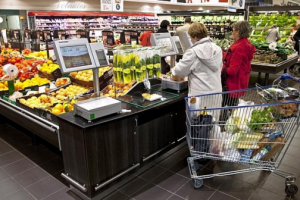 The Greek deflation reached 1.3% in 2014, according to data of the Athens Institute of Statistics Elstat. The consumer prices in Greece continued to fall in December, when recorded the sharp decline of more than a year. This is against a background of weak demand and lower costs which make the number of households for goods and services. In the last month of 2014 deflation in Greece is 0.5% MoM and 2.6% yoy, as for comparison in November the annual inflation was 1.2%.
The Greek deflation reached 1.3% in 2014, according to data of the Athens Institute of Statistics Elstat. The consumer prices in Greece continued to fall in December, when recorded the sharp decline of more than a year. This is against a background of weak demand and lower costs which make the number of households for goods and services. In the last month of 2014 deflation in Greece is 0.5% MoM and 2.6% yoy, as for comparison in November the annual inflation was 1.2%.
The December decline was mainly due to the decrease in property prices by 7.1% for the year and the decreased transport of 4.2%. The only product category in which prices rise is alcohol, cigarettes and tobacco products, where growth was within 3%. In December, the harmonized consumer price index, which is prepared by the Eurostat methodology, is also negative - minus 2.5% deflation of 1.2% in November.
In Greece deflation reigns already 22 months after redundant salaries and pensions, and deep recession, increased pressure on prices. The deflation in the Mediterranean country was highest in November 2013, when it reached 2.9% yoy.
Posted in Economy, Finance

Posted on 14 January 2015.
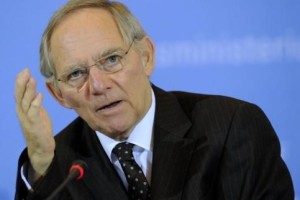 The German government succeeded to balance 2014 budget for the first time in 45 years. The Finance Minister Wolfgang Schaeuble promised to achieve this goal in 2015 and a balanced budget to become the norm for Germany, but has failed to meet its target ahead of schedule. Initially, the German government had predicted a small budget deficit of 6.5 billion EUR for 2014, but thanks to higher tax revenues and lower interest rates in debt repayments Berlin was able to finish the year without new loans. The Finance Minister Wolfgang Schaeuble pursue this objective for 15 years and managed to reach as Franz Josef Strauss, who achieved this result for the last time in 1969. Because of the good tax revenue and strict budget management Schaeuble has achieved balance without cutting subsidies or reduces costs.
The German government succeeded to balance 2014 budget for the first time in 45 years. The Finance Minister Wolfgang Schaeuble promised to achieve this goal in 2015 and a balanced budget to become the norm for Germany, but has failed to meet its target ahead of schedule. Initially, the German government had predicted a small budget deficit of 6.5 billion EUR for 2014, but thanks to higher tax revenues and lower interest rates in debt repayments Berlin was able to finish the year without new loans. The Finance Minister Wolfgang Schaeuble pursue this objective for 15 years and managed to reach as Franz Josef Strauss, who achieved this result for the last time in 1969. Because of the good tax revenue and strict budget management Schaeuble has achieved balance without cutting subsidies or reduces costs.
The opposition parties and many economists believe that the balance does not really help the economy, which needs investments for growth. In terms of total debt Germany is still above definitions of the Maastricht conditions for the Eurozone ceiling of 60% of GDP. At the end of 2013 the government debt was 2.15 trillion EUR, which is equal to 78% of GDP. Schaeuble expects the debt to be reduced to below 60% by 2024.
Posted in Economy, Finance
 Ireland will insist that any new or modified agreement achieved by Greece, also applies to them. It said the Irish Minister for Agriculture Simon Coven. The Greek Prime Minister Alexis Tsipras rejected the idea of an extension of the rescue package for Greece. He met with European premiere in Brussels this week. Instead of an extension of the program, which expires on 28th February 2015, Tsipras reiterated its call for the program to the country relies to June. Then you can achieve a long-term agreement on the debt. He expressed confidence that such an agreement can be reached between Greece and its international lenders.
Ireland will insist that any new or modified agreement achieved by Greece, also applies to them. It said the Irish Minister for Agriculture Simon Coven. The Greek Prime Minister Alexis Tsipras rejected the idea of an extension of the rescue package for Greece. He met with European premiere in Brussels this week. Instead of an extension of the program, which expires on 28th February 2015, Tsipras reiterated its call for the program to the country relies to June. Then you can achieve a long-term agreement on the debt. He expressed confidence that such an agreement can be reached between Greece and its international lenders.


















